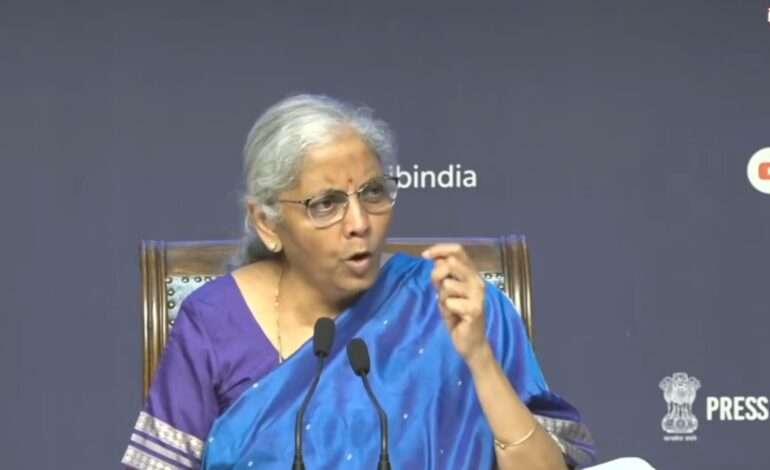
GST reforms to benefit middle class and farmers, says FM Sitharaman
Finance Minister Nirmala Sitharaman on Wednesday said that the latest Goods and Services Tax (GST) reforms are not only about rationalising rates but represent “structural” changes that will directly benefit farmers, healthcare, and the middle class.
Briefing the media after the 56th GST Council meeting, Sitharaman said the decisions were taken unanimously with support from all states and union territories. “Prime Minister Narendra Modi desired that the benefits of GST cuts should reach people at the earliest. These reforms are structural, not just rate changes. We have corrected the inverted duty structure,” she noted.
From September 22, sweeping changes will make essential items cheaper. Hair oil, soap, toothpaste, bicycles, and tableware will now attract only 5 per cent GST. Agricultural machinery, including tractors, soil preparation equipment, harvesting tools, and composting machines, will also see tax rates cut from 12 to 5 per cent.
Healthcare and farm-related products have been granted major relief, along with small appliances and automobiles. All cars under 1200 cc and bikes under 350 cc will now be charged at 18 per cent, down from higher earlier brackets.
However, “sin goods” will remain under stricter taxation. Pan masala, gutkha, cigarettes, zarda, and other tobacco products will continue under a 40 per cent GST rate with valuation shifted to the Retail Sale Price (RSP) model for greater compliance. The same high slab will also apply to caffeinated and carbonated beverages.
“These reforms put the common man at the centre,” Sitharaman emphasized, adding that the middle class and farmers will feel immediate relief as prices of daily-use goods come down.
The GST Council also recommended several measures to facilitate trade, underscoring that the changes are part of India’s broader vision for Aatmanirbhar Bharat.